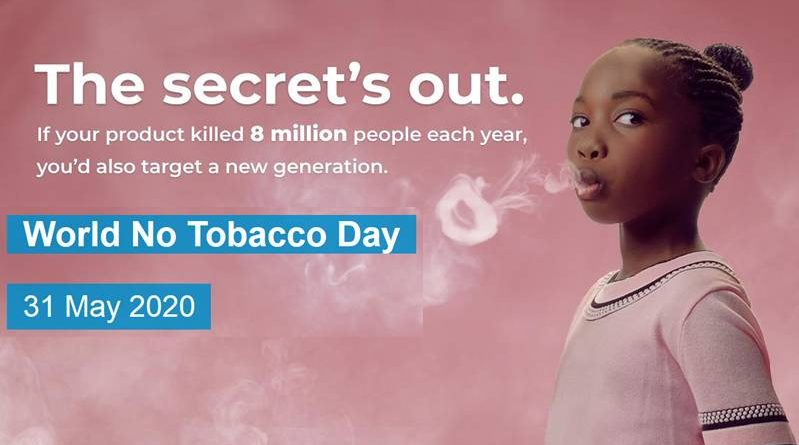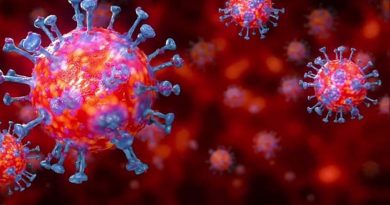World No Tobacco Day May 31, 2020
#TobaccoExposed
The global No Tobacco Day campaign will debunk myths and expose devious tactics employed by these industries. It will provide young people with the knowledge required to easily detect industry manipulation and equip them with the tools to rebuff such tactics, thereby empowering young people to stand up against them. This is especially important right now as studies show that smokers have a higher risk for a severe case of coronavirus. WHO calls on all young people to join the fight to become a tobacco-free generation
Tobacco and related industry tactics to attract younger generations
✔ Flavours appealing to children in smokeless tobacco, shisha and e-cigarettes.
✔ Promotion of tobacco products and the distribution of free samples at popular events for young people.
✔ Advertising and product placement on movies and tv-shows and through social media platforms with paid influencers.
Are there immediate and long-term health benefits of quitting for all smokers?
Beneficial health changes that take place:
- Within 20 minutes, your heart rate and blood pressure drop.
- 12 hours, the carbon monoxide level in your blood drops to normal.
- 2-12 weeks, your circulation improves and your lung function increases.
- 1-9 months, coughing and shortness of breath decrease.
- 1 year, your risk of coronary heart disease is about half that of a smoker’s.
- 5 years, your stroke risk is reduced to that of a nonsmoker 5 to 15 years after quitting.
- 10 years, your risk of lung cancer falls to about half that of a smoker and your risk of cancer of the mouth, throat, esophagus, bladder, cervix, and pancreas decreases.
- 15 years, the risk of coronary heart disease is that of a nonsmoker’s.
Benefits in comparison with those who continued:
- At about 30: gain almost 10 years of life expectancy.
- At about 40: gain 9 years of life expectancy.
- At about 50: gain 6 years of life expectancy.
- At about 60: gain 3 years of life expectancy.
- After the onset of life-threatening disease: rapid benefit, people who quit smoking after having a heart attack reduce their chances of having another heart attack by 50%.
How does quitting smoking affect children who are exposed to second-hand smoke?
Quitting smoking decreases the excess risk of many diseases related to second-hand smoke in children, such as respiratory diseases (e.g., asthma) and ear infections.
Are there any other benefits to quitting smoking?
Quitting smoking reduces the chances of impotence, having difficulty getting pregnant, having premature births, babies with low birth weights and miscarriage.
Create Your Own World No Tobacco day Workshop





